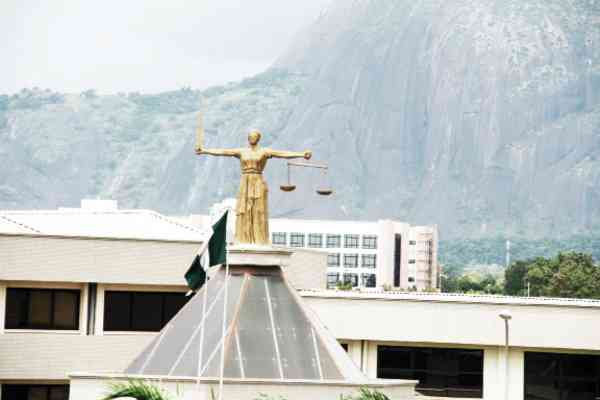Some Abuja-based legal practitioners have said thorough investigation and establishment of prima facie case is the only panacea that will eliminate delays and fast track prosecution of corruption cases.
The lawyers made this known in separate interviews with the News Agency of Nigeria (NAN) in Abuja.
They said the establishment of incontrovertible evidences by anti-graft agencies through proper investigation before arrest would speed up the trials.
One of the lawyers, Mr Alex Williams, told NAN that it was absolutely wrong for anti-graft agencies to arrest anybody on charges of corruption based on mere speculations or petitions.
According to him, corruption cases are dicey and often involve fiscal and other assets.
Williams said that a premature arrest might lead to destruction of useful evidence or even total loss of the money/material evidence needed for trail.
“Success in fighting graft anywhere in the world is rooted in pure intelligence gathering.
“Intelligence is nothing but processed information, but what we have here is evasion to intelligence gathering in preference for showmanship,” he said.
Williams stress that because of this systemic failure, the anti-graft agencies resort to drama of arrest; obtain remand warrant from court before beginning investigation.
He said the proper procedure was to gather intelligence, weigh the proof of evidence, arrest and then charge the suspect to court.
He added that as result of this misplaced priority, suspects were left `to serve prison sentences’ even while they have not been convicted.
Williams said that this account for why anti-graft agencies slam up to 00-count charges on suspects which could hardly be proved.
He said reasons constantly adduced by anti-graft agencies for leaving suspects in prison and seek adjournments to enable them conclude investigations were unconstitutional, unacceptable, unlawful, and therefore illegal.
“The right to be presumed innocent until convicted by a court of competent jurisdiction is constitutional and cannot be abridged by any subsidiary legislation.
Williams alleged that when anti-graft agencies have their way, “justice is served, but when a judge disagrees with them, they will say that the judge is corrupt.
He told NAN that while they must work hard to root out crime from, the agencies must not go with the mindset that they must secure conviction by all means.
“Prosecution is not the same thing as persecution; we can’t fight corruption that way,” he added
Another lawyer, Mr Andrews Chibuzor, corroborated Williams views that anti-graft agencies should not arrest before investigation.
Chibuzor told NAN that in most cases, these agencies lacked evidence to show that the suspects actually committed the alleged offices.
“That is why if the case is finally charged to court it does not hold water because proper investigations are not conducted before arrest,” Chibuzor said.
According to him, the agencies should conduct proper investigation before arrest because lack of evidence from the prosecuting agencies is the major cause of delay in corruption cases in court.
He, however, said that it was wrong to put suspects in detention and seek frivolous adjournments from courts all in the name of investigation.
“Investigation ought to be concluded before charging the case to court and all evidence to be used also attached to the case file for proper trial.
“This is to avoid infringing on persons fundamental human rights as enshrined in the 1999 Constitution of the Federal Republic of Nigeria as amended.
“From practice it is obvious that the anti-graft agencies do not do proper investigation before arraignment,” Chibuzor remarked.
He said that when the cases of anti-graft agencies were struck out for want of diligent prosecution, they turnaround to blame judges and defence counsel for aiding and abating corruption.
Also, a Lagos-based lawyer, Mr Moses Usoh-Abia, supported thorough investigation before making any arrest.
Ukoh-Abia told NAN that investigation before arrest was in line with international best practices, adding that no lawyer or judge would see an upright case and employ technicalities to thwart it.



Leave a Reply